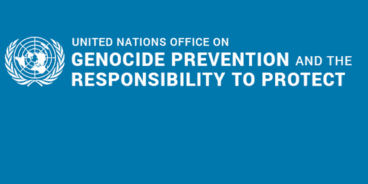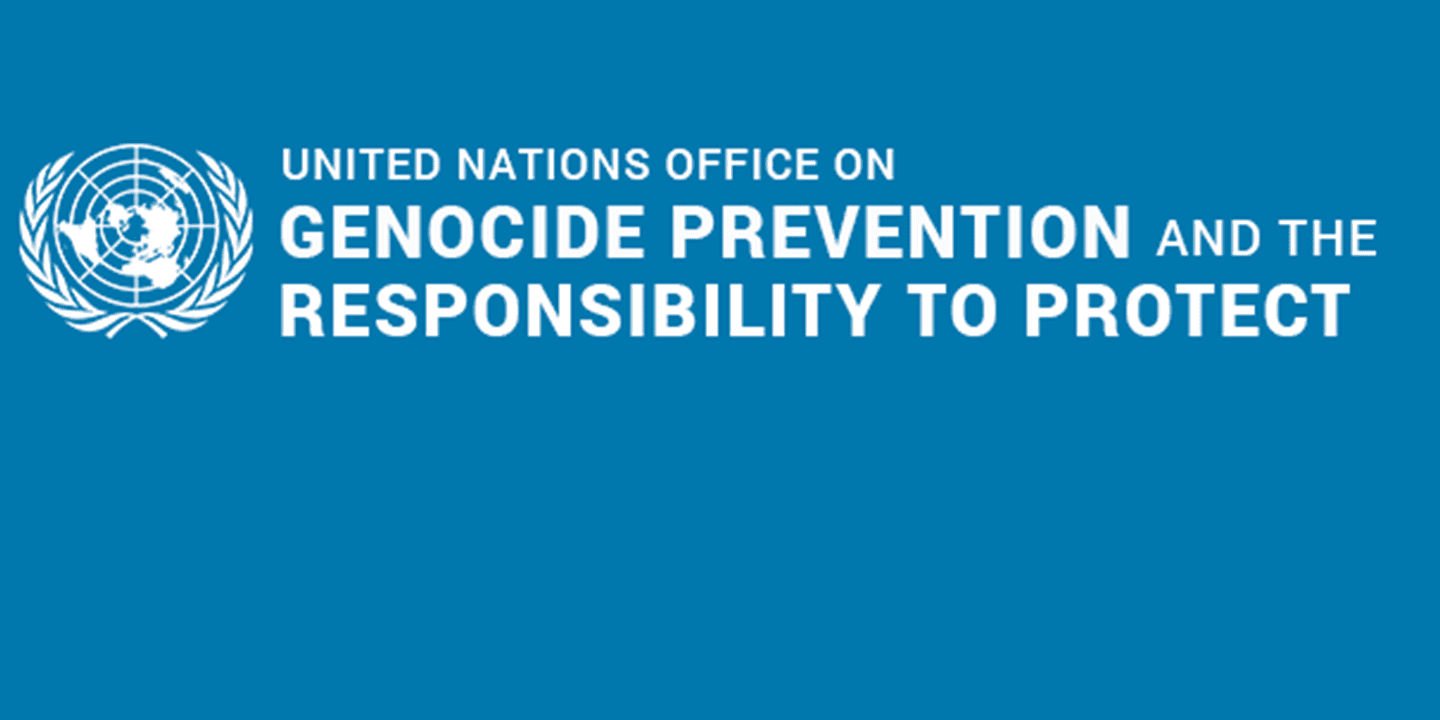

Statement by Ms. Alice Wairimu Nderitu, Special Adviser on the Prevention of Genocide, and Ms. Mô Bleeker, Special Adviser on the Responsibility to Protect, on the escalation of violence in Myanmar
The Special Adviser on the Prevention of Genocide, Alice Wairimu Nderitu, and the Special Adviser on the Responsibility to Protect, Mô Bleeker, express concern about the situation since the military coup in 2021 and are alarmed at the increase of violence and conflict across Myanmar. The situation has been under the close observation of the Office and in March 2021 the Special Adviser Wairimu Nderitu and the then UN High Commissioner for Human Rights, Michelle Bachelet, issued a joint statement calling for an end to systemic impunity in Myanmar.
Converging reports indicate that serious crimes under international human rights and humanitarian law are being committed, notably the direct targeting of civilians with aerial and artillery bombardments, numerous violations of children’s rights, among them enforced recruitment, maiming and abduction by the Armed Forces. Despite provisional measures ordered by the International Court of Justice in January 2020, Rohingya in Myanmar, including women and children, continue to suffer from targeted killings and indiscriminate violence, including by airstrikes, shelling, burning, landmines, and unexploded ordnance. OCHA reports that the humanitarian crisis “has entered a dangerous new chapter with entrenched conflict posing grave risks to civilians, stirring a worrying resurgence of inter-communal tension and driving record levels of displacement”. As of today, more than 3.2 million people have been internally displaced with young people, boys and girls, reported to be leaving Myanmar, trying to avoid conflict, and enforced military conscription.
“Since October 2023, civilians across the country are paying the brunt of renewed violence between the ethnic armed groups and the Myanmar military. Regardless of religion, ethnicity, origin, gender, political affiliation, the Myanmar military is primarily responsible to address and counter hate speech and prevent incitement to discrimination, hostility, or violence against minorities, as well as to prevent and protect the entire civil population from and against the crimes of genocide, war crimes, and crimes against humanity”, the Special Advisers note.
The Special Advisers reiterate concerns raised by the High Commissioner for Human Rights in his statement to the Human Rights Council on 18 June, which described most serious allegations of targeted violence against the Rohingya, by both the Arakan Army and the Armed forces, including beheadings, burning of villages as people sleep, drone attacks, killings of unarmed people fleeing, evacuation orders with nowhere to go. The situation has seriously deteriorated, and disturbing reports indicate that displaced civilians, many of whom are Rohingya, are being used as human shields. In this context, hate speech is also being used again, since 2017, to stoke ethnic tensions between Rohingya and Arakhan community, with the view to exacerbate interethnic polarization. In addition, reports indicate forced recruitment of the Rohingya into the Armed Forces and the Arakhan Army.
Furthermore, the Special Advisers stress recent reports of escalation of violence in the Shan State and the neighboring Mandalay Region, ending a six-month ceasefire as set by the Haigen agreement, resulting in a deterioration of the security and humanitarian situation also in the north of the country.
Measures to prevent further hate speech and incitement to discrimination, hostility, or violence, as well as violations of human rights, international humanitarian law, and protection of all groups at risk across the country among other against forced internal displacement and forced recruitment, must be put in place. In particular, the provisional measures ordered by the International Court of Justice in 2020 in relation to the members of the Rohingya group on the territory of Myanmar must be upheld.
The restrictions on humanitarian aid threatening civilians in conflict areas may be considered as violation of international humanitarian law. The Special Advisers recall that parties to the armed conflict shall fully respect international law and international humanitarian law and urge them to return to dialogue, deescalate violence, and fully protect civilians.
The Special Advisers also urge for a prompt implementation of the United Nations Security Council Resolution 2669 (2022) on the situation in Myanmar, which demands an immediate end to all forms of violence throughout the country, and restraint and de-escalation of tensions.
They encourage ASEAN to renew urgent and commensurate efforts towards a political solution and a full protection of civilians, taking into account the ongoing serious deterioration of the situation. An inclusive and comprehensive national political dialogue and nationwide reconciliation process is required with the full, effective, and meaningful participation of all ethnic groups, including Rohingya and other minorities, women, young people, and persons with disabilities, as well as civil society and religious leaders. Finally, the Special Advisers urge for the international community to implement joint efforts to reassess the crisis in Myanmar in the light of the significant developments that are unfolding and launch a robust coordinated effort.
The Special Advisers also expressed concern over the ongoing instrumentalization of justice against the political opposition and call the Myanmar Military to respect and reestablish the full independence of justice. The Special Advisers also acknowledge the important efforts taking place before the International Court of Justice (ICJ), as well as the work being carried out by the Independent Investigative Mechanism for Myanmar (IIMM) established by the United Nations Human Rights Council. Ensuring the full observance of the principles of Rule of Law today and ensuring accountability for past crimes, to realize a holistic transitional justice process and trial the most serious international crimes committed are indispensable to bring sustainable peace, justice, safety and create the basis for a new peaceful future for all people across Myanmar.
Related Content

